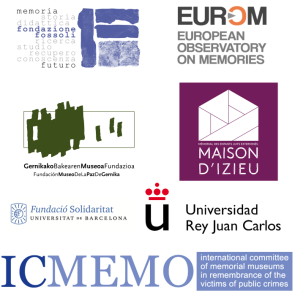About the Project
The project REMEMCHILD focuses on giving a voice to children and women and to their experiences during and memories of wartime in Europe, especially related to the Second World War and the early postwar period.
Children formed one of the most vulnerable parts of society during the Second World War. Jewish and Roma children make up a big part of the victims of the Holocaust, children with disabilities were abused and experimented on, and children of members of the Resistance were often victims of violence. During wartime, children are often interned, displaced, orphaned, etc. They are victims, protagonists, survivors of conflicts, and their memory and agency is often forgotten when remembering the events.
During wartime, women cover several key roles. Not only many of them are victims of violence, but also Resistance fighters and combatants, sanitary and medical workers, rear-guard members, humanitarian air volunteers, mothers, protectors and carers for their children and the local communities.
Expected results
In this project, we will carry out a series of activities that target children, youth, researchers, humanitarian organisations, memorials and museums, educators, artists, and refugees (among others), to bring to the forefront the memories and experiences of women and children during the war time.
At EuroClio, we will be focusing on two main activities for teachers and educators:
- The production of two online sessions on Remembrance. These two sessions will be launched soon, and will focus on:
- How to use video testimonies of women and children in the classroom (set to take place on 24 May, for more information click here)
- The experience of women and children during wartime (set to take place in June 2023)
- The co-authoring of guidelines for teachers on how to use the content of the project’s digital exhibition on “children behind the trenches” to create engaging and informative lesson materials. (expected in the fall of 2024).
Other project results will include: the launch of a campaign on “walls against oblivion”, a series of workshops that use children drawings as a pedagogical tool, an exhibition on “Children behind the trenches”, and a final conference. A dedicated project website will be launched soon, highlighting all the project news and upcoming events and activities.
Coming up...
24 May: Webinar on The use of Video Testimonies in the classroom
June 2023: Webinar on The experience of women and children during wartime
More updates coming soon!!
At a glance
Donor
The project will be implemented with the financial support of the European Union.

Project Coordinator
At EuroClio, the project is coordinated by Alice Modena (Deputy Director)
The project is coordinated by UNED – Universidad Nacional de Educación a Distancia (Madrid)

Project Partners

